The Cultural Significance of Animal Crossing: New Horizons
Oct-21-2024
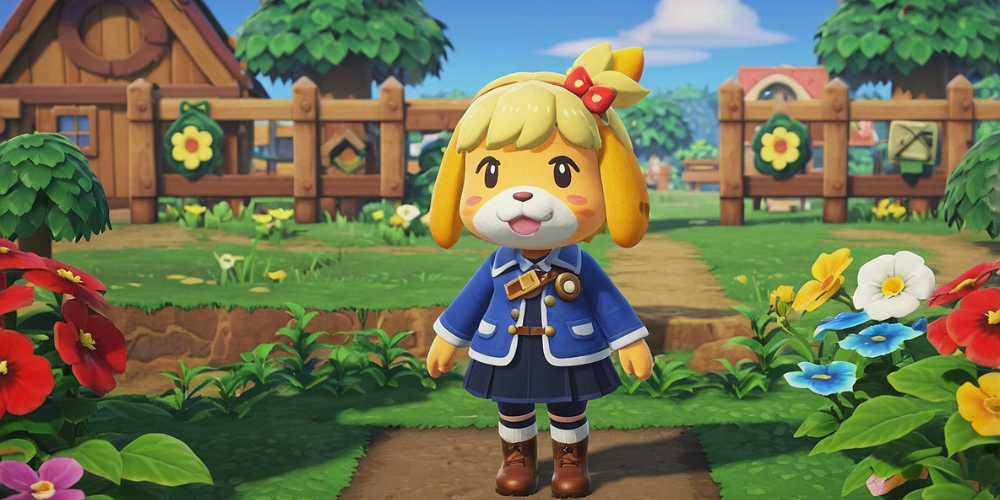
Upon its launch in March 2020, Animal Crossing: New Horizons provided a refreshing escape from the turmoil of the outside world. As I sat down to play the game, I realized I wasn’t just engaging with a simple simulation; I was entering a vibrant, social space that would become meaningful in ways I had never anticipated. The pandemic had created a sense of isolation and uncertainty, yet this virtual world offered a comforting escape.
My Virtual Sanctuary
As I shaped my island, I discovered a unique form of self-expression. The ability to customize my environment, from the layout of my home to the placement of trees and flowers, was empowering. It allowed me to curate a personal sanctuary that mirrored my desires and aspirations. Each nook and cranny of my island reflected my identity, creating a space that felt distinctly mine amidst a global crisis.
The Role of Community
One of the most remarkable features of the game was the sense of belonging it nurtured, even in the limits of a virtual environment. My island friends and villagers quickly became a source of support and laughter. Interacting with characters like Tom Nook and Isabelle provided a welcome distraction. Their quirky personalities brought joy and humor into my day-to-day routine.
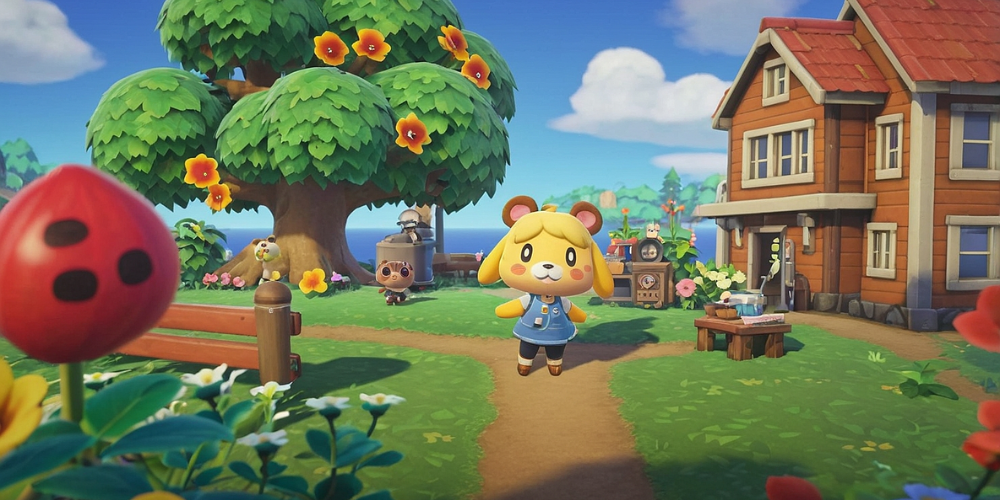
Connecting with Others
Animal Crossing: New Horizons transformed the way I connected with friends and family. The ability to visit each other’s islands added a layer of social interaction that was especially vital during lockdowns. Sharing gardening tips, trading items, or simply exploring another player’s meticulously crafted paradise became a regular ritual for us. This collaborative spirit was a lifeline during a period when physical interactions were limited.
Representation and Diversity
The game also resonated with broader cultural themes. Its representation of diverse characters appealed to a wide audience. Playing alongside villagers of different species and personalities normalized unique traits and identities, promoting inclusivity. This diversity opened dialogues about representation in gaming, making Animal Crossing a progressive voice in the industry.
Time and Routine
Time in Animal Crossing flows differently. The real-time clock offered a gentle reminder of life’s rhythm. There was something satisfying about waiting for seasons to change and planning my in-game days around real-world time. It eased my anxiety in a world that felt unpredictable. By participating in seasonal events and daily tasks, I found a comforting routine that mirrored the rituals of real life.
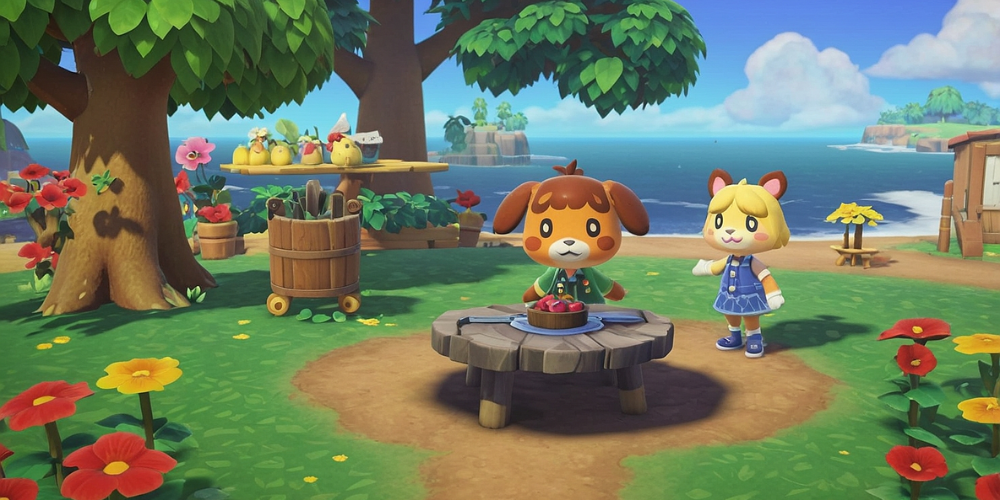
Creativity and Self-Expression
In crafting and designing, I saw the game function as a canvas for artistic expression. I could create everything from elaborate gardens to cozy homes, showcasing my creative side. The DIY element empowered me to experiment without fear of failure, encouraging innovation and personal storytelling. This focus on creativity resonated with many players, sparking a surge of online sharing and inspiration.
Learning and Growth
The game taught me valuable lessons about patience and gradual progress. Unlike many competitive games, success in Animal Crossing is not about winning but about personal milestones. I learned to appreciate small victories, like completing a series of tasks or collecting a specific item. This slow pace offered an important counterbalance to the fast-moving world outside.
A Platform for Mental Wellness
For many, including myself, the game provided a sanctuary for mental wellness. The soothing visuals and calming soundtrack created a serene, non-judgmental environment. As I tended to my digital garden, I felt a sense of peace that was sometimes hard to find elsewhere. The act of nurturing villagers and plants contributed to a gratifying sense of purpose, particularly in challenging times.
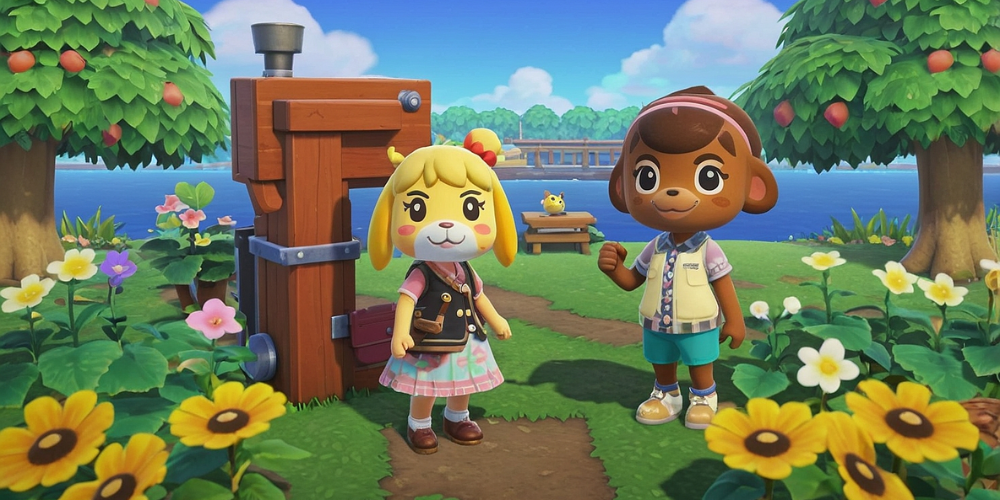
Economic Commentary
The game’s economy is both whimsical and telling. With characters like Tom Nook, who runs a successful, yet sometimes bewildering, business, the game touches on themes of consumer culture. It raises questions about capitalism and community while maintaining a light-hearted tone. This subtext added layers to the gameplay, allowing for deeper reflection on society’s values.
Escapism in a Virtual World
Escapism is a central theme of Animal Crossing: New Horizons. As I explored my island, I could forget the worries of the outside world. The stress of the pandemic made virtual escapes immensely appealing. The game world offered a safe space to let my imagination run wild. I could choose whether to engage with daily life or retreat into my island paradise.
Environmental Awareness
Animal Crossing subtly instills a sense of environmental stewardship. By cultivating landscapes, planting trees, and preserving nature, I became more conscious of ecological issues. This awareness extended beyond gameplay. It inspired me to consider my impact on the real world and reflect upon sustainable practices in my own life.
Music and Soundscapes
The soundtrack played a pivotal role in shaping my experience. Each season introduced different melodies that captured the essence of my island. The sounds of waves, chirping birds, and rustic tunes created a soothing ambiance. The music transported me, adding emotional depth to my journey and enhancing the overall atmosphere of tranquility.
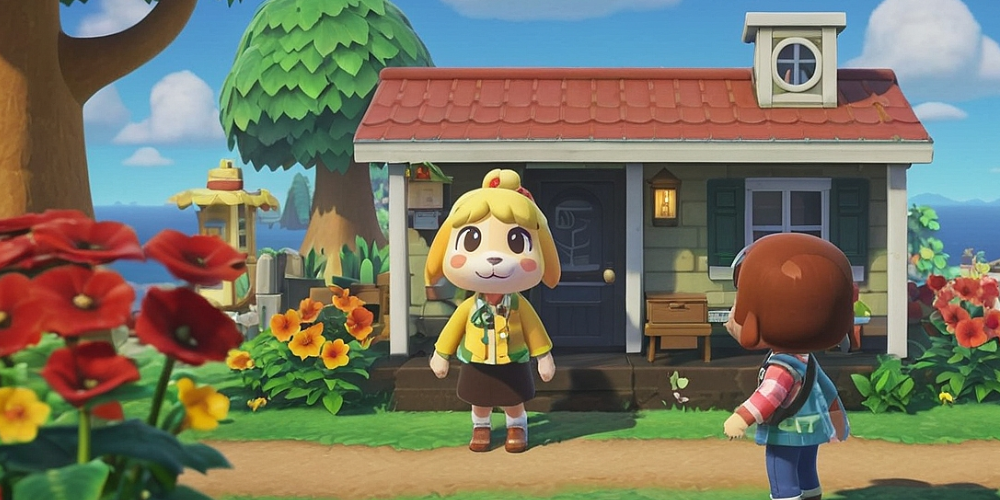
Cultural Exchange
Animal Crossing also served as a platform for cultural exchange. Players from around the globe shared their islands, customs, and unique designs. I found inspiration in designs that reflected Japanese culture, Nordic influences, and so much more. This cross-cultural interaction deepened my understanding of the world, making me more appreciative of diverse traditions.
The Power of Nostalgia
Many of us have fond memories of previous iterations of Animal Crossing. The nostalgia factor played a significant role in the game’s initial success. For me, it was reminiscent of my childhood experiences. This sentimentality established a connection that went beyond gameplay, tapping into a collective memory shared by fans worldwide.
The Impact of Customization
Customization in Animal Crossing: New Horizons was a game-changer. It offered the ability to personalize everything from home décor to clothing. These options allowed for individuality, creating an authentic sense of ownership. The freedom to express my tastes and preferences manifested a deeper connection to my island, making it feel like an extension of myself.
The Influence of Social Media
The role of social media in enhancing the game’s cultural impact cannot be overlooked. Platforms like Instagram, TikTok, and Twitter saw players showcasing their creations, exchanging tips, and fostering community engagement. I found an entire world of creative stories, shared experiences, and innovative designs that drove me to push the boundaries of my own gameplay. This digital interconnectedness transformed personal gameplay into a shared cultural phenomenon.







